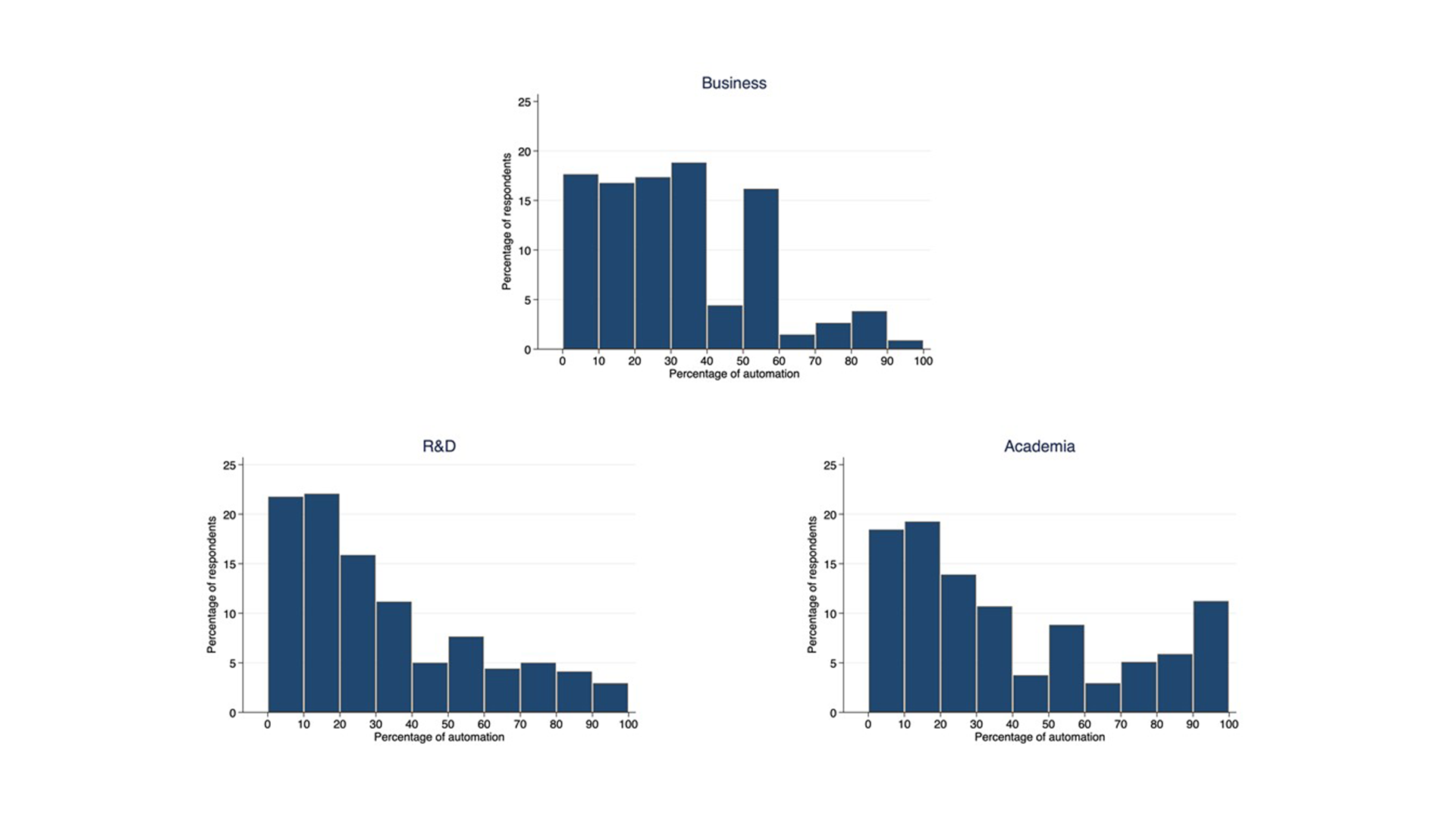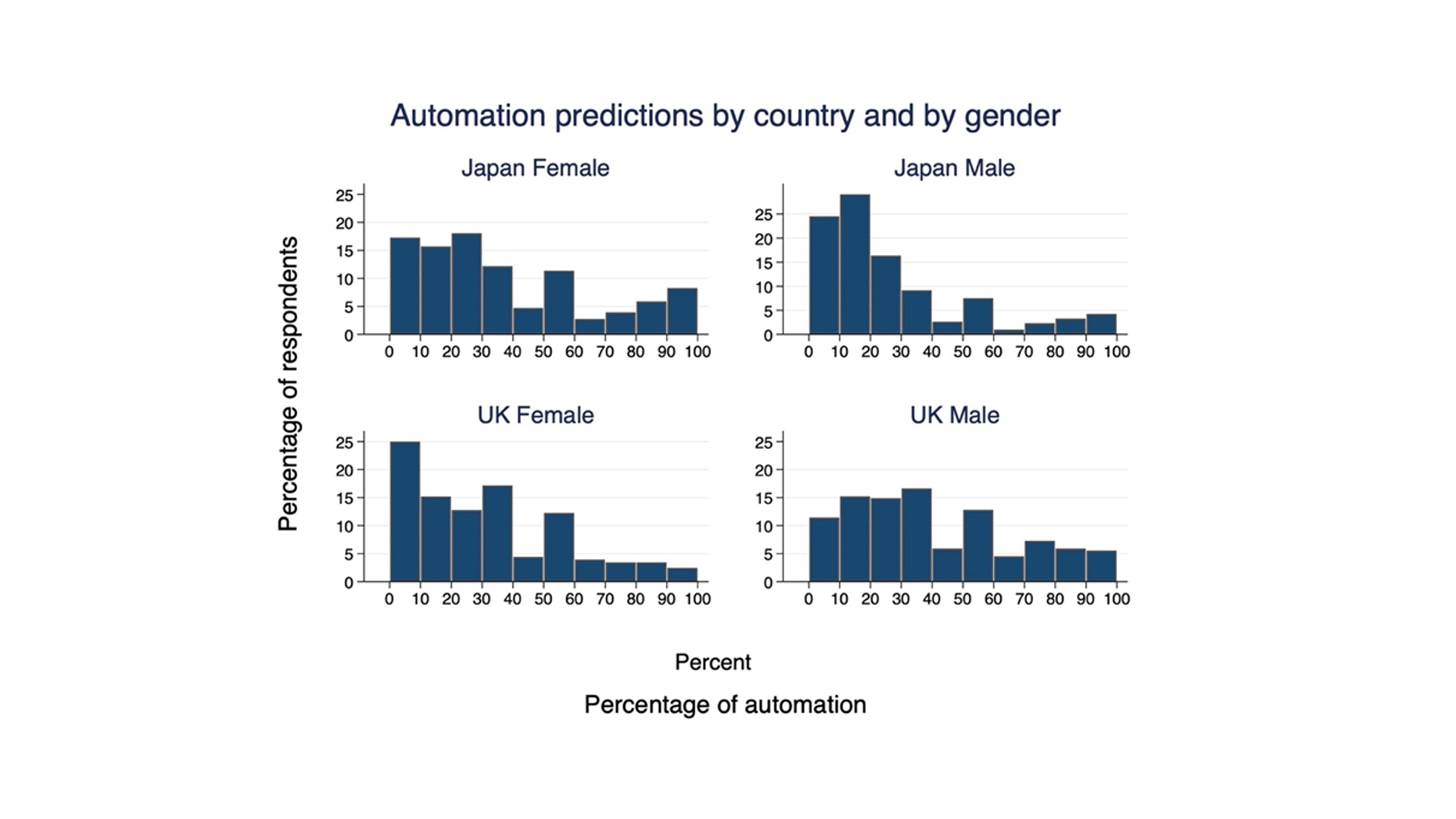Work package #1
In Work Package One we carry out a structured online forecasting exercise, also known as Delphi method, to quantify experts’ expectations about the potential for and cost of automation for a variety of domestic tasks. Our initial findings point to some differences in experts’ predictions depending on whether they are based in academia, in commercial research and development, or in business management. Gender and country of residence also impact their forecasts.
The first paper coming out from this work package is published in PLOS ONE as The future(s) of unpaid work: How susceptible do experts from different backgrounds think the domestic sphere is to automation.
WP1 forecasts the future of the automation of unpaid domestic work. Experts knowledgeable in the area of technology development were invited to participate in a Delphi survey consisting of two waves. The first wave now is completed. In the second wave the experts can calibrate their answers on the basis of the justification from outlier respondents.
Preliminary findings show, among other things, that the background of the experts shapes the predictions they make. Depending on the field of expertise, gender and country of the expert, the projected degree of automation varies.
Field of expertise: Academics provide the most extreme answers, whereas fewer respondents working in R&D and business tend to forecast close to 100% automation.

